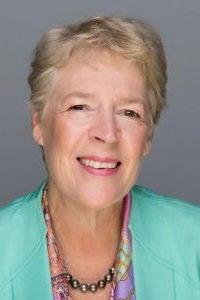Tellus appoints new Non-Executive Director Kathy Hirschfeld
The Board of Tellus Holdings Ltd (Tellus) today announced that it has appointed Ms Kathy Hirschfeld as an independent non-executive director.
“I am pleased to welcome Kathy to the Board particularly given her experience in the waste and oil and gas sector,” said Chairman of the Board Phil Garling.
Kathy has extensive experience on ASX, NYSE, private company and government boards and brings to her board roles corporate and commercial experience as a CEO of a complex manufacturing business; as well as expertise in operational risk management, safety and corporate governance.
Kathy is a chemical engineer with 20 years of experience with BP in oil refining, logistics and exploration in Australia, the UK and Turkey. Kathy was also a Logistics Officer in the Australian Army Reserve.
Fig 1: Kathy Hirschfeld

Kathy is passionate about improving the representation of women in leadership and engineering and was named one of Australia’s AFR/Westpac 100 Women of Influence in 2015 and was the ninth woman recognised by Engineers Australia as an Honorary Fellow.
Ms Hirschfeld holds a Bachelor of Engineering (Chemical) from The University of Queensland, is a Fellow of the Australian Academy of Technological Sciences and Engineering, the Institution of Chemical Engineers and the Australian Institute of Company Directors.
She also serves as Chair of Powerlink Queensland, non-executive director of Queensland Urban Utilities, non-executive director of Central Petroleum Limited and subsidiaries, Senator of The University of Queensland, and is President of UN Women National Committee Australia.
Until recently Kathy was non-executive director on the Board of Toxfree Solutions up to the acquisition by Cleanaway. She has also served on the boards of Energy Queensland, InterOil Corporation, Broadspectrum, ASC Pty Limited and Snowy Hydro Limited.
Ms Hirschfeld’s appointment to the Tellus Holdings Ltd Board will take effect from 22nd February 2019.
About Tellus Holdings:
Tellus Holdings Ltd (“Tellus”) mission is to contribute towards a cleaner Australia by developing a portfolio of geological repositories that provide waste storage, recovery and permanent isolation solutions plus complementary clay and salt products to our clients. This dual revenue model involves mining kaolin clay and rock salt commodities located in thick dry remote formations creating world’s best practice geological solutions. The voids created by mining will be used to store equipment, archives and waste using a multi- barrier system as part of an integrated safety case. Tellus plans to permanently isolate hazardous waste using environmentally sound management (ESM) principles that protect the environment and human health. Tellus also integrates long-term storage solutions that supports the circular economy by placing like-with-like materials for operational safety reasons and to create opportunities for the future recovery of valuable materials. Tellus’ business model mirrors overseas solutions operating in the UK, Europe and North America. Tellus is developing the proposed Sandy Ridge facility in Western Australia (WA) and the proposed Chandler facility in the Northern Territory (NT). Both Sandy Ridge and Chandler were awarded Major Project Facilitation Service by the Australian Government and Chandler was awarded Major Project Status by the NT Government.
About Sandy Ridge:
Tellus is proposing to develop the Sandy Ridge facility, Australia’s first dual open-cut kaolin mine and arid near-surface geological waste repository in a 70-million-year-old kaolin clay bed with a 25-year operating licence, which is located 240 kilometres by road west north west of Kalgoorlie. The proposal would involve mining up to 290,000 tpa of kaolin clay and receiving up to 100,000 tpa of Class IV and V waste (“hazardous waste”) at the facility gate over 25 years. Only wastes generated within WA, other Australian States and Territories, and the Australian Exclusive Economic Zone can be accepted, subject to meeting the facility’s waste acceptance criteria.
About kaolin clay:
The kaolin to be mined is suitable for applications in the ceramics, paint and environmental remediation industries.
About hazardous waste
In its simplest definition, hazardous waste is waste that can harm the environment or human health and therefore should be removed from the biosphere where it can pose a threat. Australia is one of the highest emitters of hazardous
waste per capita. Approximately 10% of Australian reported waste is classified as hazardous (by volume). Annual hazardous waste production in 2015 was approx. 45 M tpa, with only 5.3 M tpa reported and entering the waste market. The legacy hazardous waste stockpile in Australia is 1 Billion tonnes and growing. There is insufficient infrastructure at competitive price points to permanently solve the problem or recover valuable materials. Tellus Sandy Ridge facility will be licenced to accept Class IV (Secure Landfill) and Class V (Intractable Landfill) waste from all of Australia. The majority is chemical waste from a broad spectrum of industrial sectors, including mining, oil and gas, contaminated site remediation, and utilities, along with a small amount of low level (LLW) Naturally Occurring Radioactive Materials (NORM) and low level Disused Sealed Radioactive Sources (DSRS). Tellus’ Sandy Ridge facility will not accept any nuclear waste, or waste streams falling under intermediate (ILW) or high level (HLW) radioactive waste designations.
About geological repositories:
Geological repositories are facilities that can offer long term storage, treatment, recovery and permanent isolation of equipment and hazardous waste services. Geological repositories provide the highest level of containment for hazardous waste (chemical waste) and low-level radioactive waste (LLW) isolating them from the biosphere over geological time. This is achieved through a combination of carefully selected active (man-made engineered barriers) and passive control measures (natural barriers). This is known as a multi-barrier system. Tellus’ safety case relies on multiple fail-safe mechanisms but the best barrier of them all is the passive control mechanism. In other words, the carefully selected site and host rock which does not require ongoing monitoring is the fundamental property of geological waste repositories, which remain passively safe through geological time.
For further information:
Visit: www.tellusholdings.com.au or contact:
Duncan van der Merwe
Managing Director
Tel: +61 (0)2 8257 3395 E-mail: info@tellusholdings.com Jonathan
Jonathan Fisher
CFO/ Company Secretary
Tel: +61 (0)2 8257 3395 E-mail: companysec@tellusholdings.com
